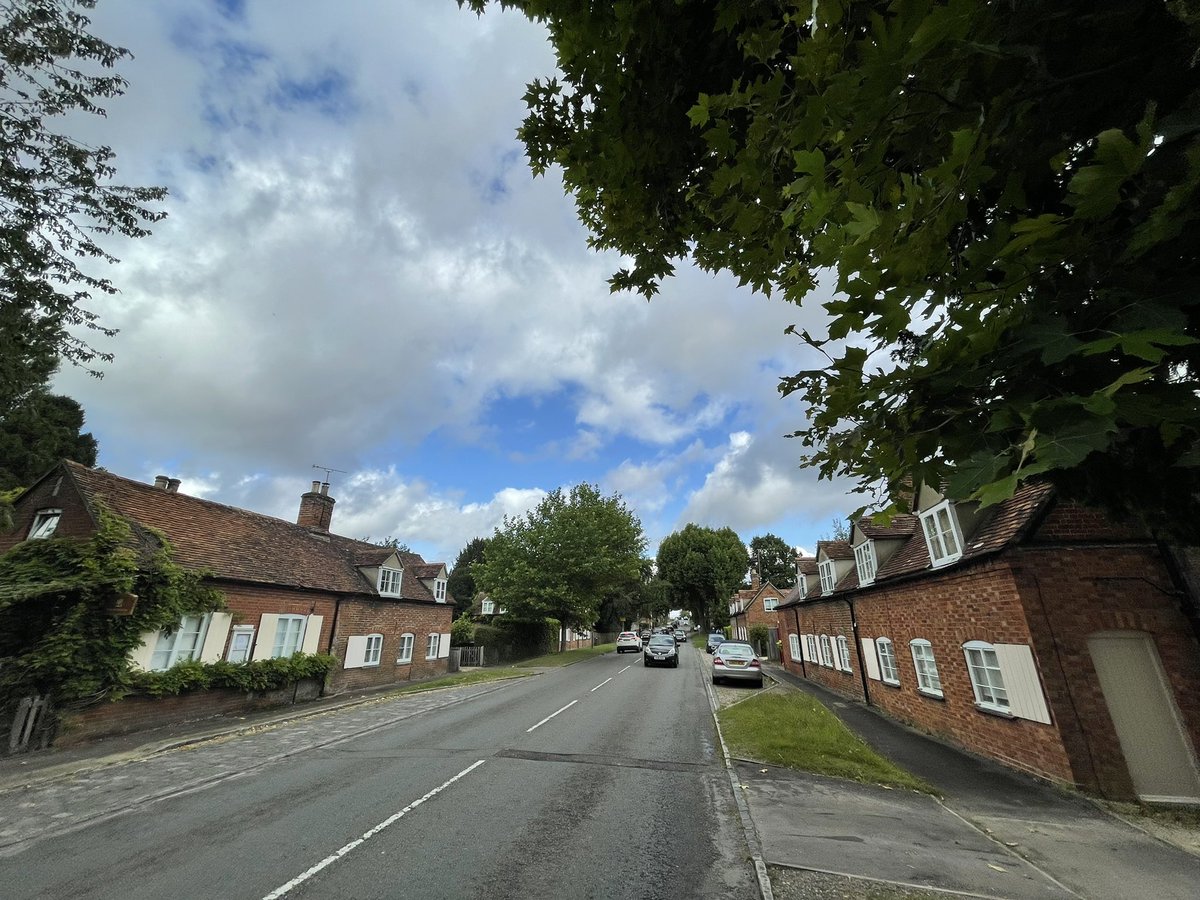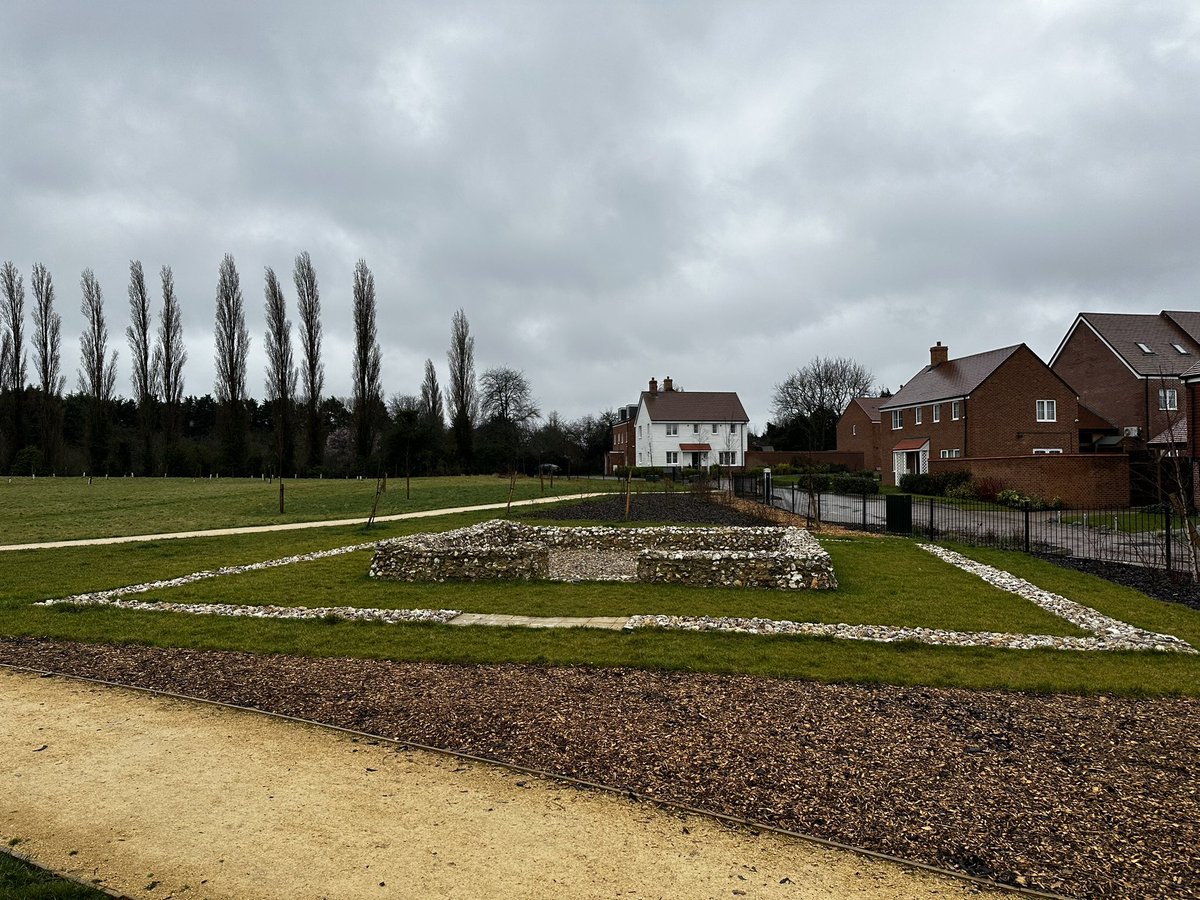Very grateful to @bbctms for inviting me on, & giving me the chance to talk about Monday week’s elite #CricketWalk: raising money for the homeless in Britain & Yazidi refugees in Iraq
https://twitter.com/bbctms/status/1426807196520693761
Full details - plus a couple of sensational videos - here:
https://twitter.com/holland_tom/status/1421766588404015109
And now to get in some training, with an elite walk around Oxford.
To Nuneham Courtney! (Coincidentally, one of my favourite 1980s West Indies fast bowlers…)
#OxfordWalk
To Nuneham Courtney! (Coincidentally, one of my favourite 1980s West Indies fast bowlers…)
#OxfordWalk
The village of Nuneham Courtney - which in 1425 was bought by Thomas Chaucer, son of the poet - was demolished in the 1760 by Lord Harcourt, who wanted to build himself a slap-up Palladian villa on the site. In WW2 it was requisitioned by the RAF; today it’s a Buddhist retreat. 

The villagers were moved by Lord Harcourt into 2 rows of semi-detached cottages on either side of what today is the A4074.
The spectacle of an ancient village being cleared to make way for a rich man’s landscaped park provoked Oliver Goldsmith to write The Deserted Village.
The spectacle of an ancient village being cleared to make way for a rich man’s landscaped park provoked Oliver Goldsmith to write The Deserted Village.

“Sweet smiling village, loveliest of the lawn,
Thy sports are fled, and all thy charms withdrawn;
Amidst thy bowers the tyrant's hand is seen,
And desolation saddens all thy green:
One only master grasps the whole domain,
And half a tillage stints thy smiling plain…”
Thy sports are fled, and all thy charms withdrawn;
Amidst thy bowers the tyrant's hand is seen,
And desolation saddens all thy green:
One only master grasps the whole domain,
And half a tillage stints thy smiling plain…”
Hoving into view: the Joint European Torus (JET), where Europe’s top boffins are busy trying to solve the energy crisis by doing brilliant things with fusion.*
The plasmas in JET are apparently hotter than anything else in the Solar System.
*Though Brexit a spanner in the works
The plasmas in JET are apparently hotter than anything else in the Solar System.
*Though Brexit a spanner in the works

Enjoying the bucolic calm…
We cross the grounds of Radley College. They have a golf course.
And beagle kennels.
“And that sweet city with her dreaming spires,
She needs not June for beauty's heightening.”
Which is just as well, since our view of Oxford from Boar’s Hill is a rather gloomy, Augustan one…
She needs not June for beauty's heightening.”
Which is just as well, since our view of Oxford from Boar’s Hill is a rather gloomy, Augustan one…

• • •
Missing some Tweet in this thread? You can try to
force a refresh





















